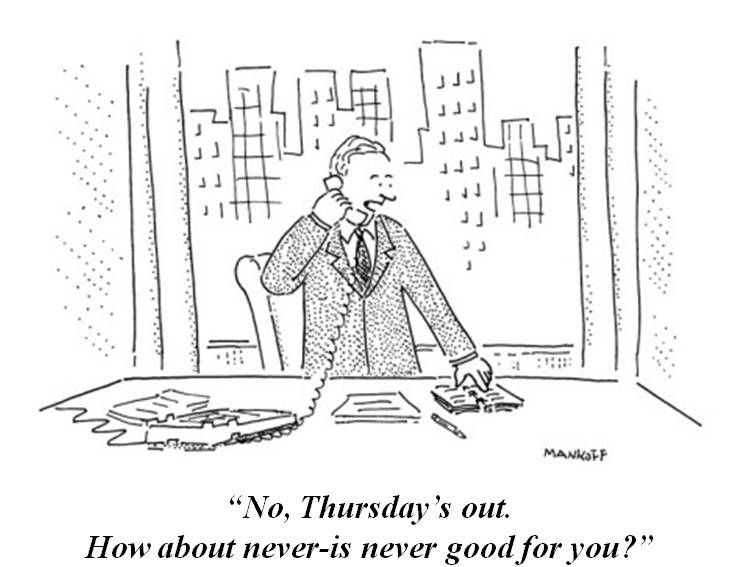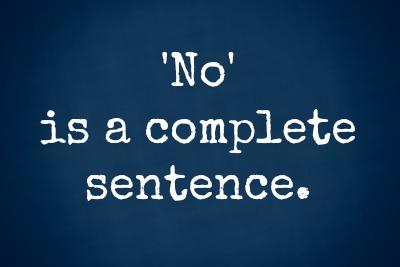We live in a culture obsessed with multitasking and distraction. People think nothing of heaping on responsibilities until they’re about to topple over. We wear the badge of overcommitment proudly. After all, feeling rundown and overwhelmed is part of being a grownup. Right? Well.
As introverts, and as adults in charge of our own body and mind, we can choose not to jump on the overcommitment bandwagon. We do this by replacing our eager, people-pleasing yes’s with, polite, but firm no’s.
All the magic workings of the mind require time. The more we say yes to the demands of others, the less time we have for creativity, critical thinking, and innovation. In order to guard our time, we must learn to say no.
Saying no is difficult. We fear that we will be deemed rude or selfish if we don’t comply. We don’t want to be mean and we most certainly don’t want to cause conflict. Consequently, we allow ourselves to become overcommitted yes-people like everyone else.
But we shouldn’t see saying no as a bad thing. Saying no can be a means of saying yes to something better. A person might say no to traveling so that they can find joy and fulfillment in raising a family. A student might decline a party invitation to do homework and achieve good grades.
Our life is defined by our choices. We have to decide what is deserving of our energy and attention right now, and what isn’t. We must edit and cut away the parts that weight us down, so that the rest can flourish.
There is a lot of advice out there on how to say no. Apparently, this two-letter word stirs up so much anxiety in us that we need a script to buffer its blow. The N-word can be padded with grownup phrases, such as: “I have other priorities” or “I’d like to, but I don’t have time” or “let me think about it and get back to you”. If you want to get really fancy, you can memorize this quote by Charles Dickens:
“’It is only half an hour’ – ‘It is only an afternoon’ – ‘It is only an evening,’ people say to me over and over again; but they don’t know that it is impossible to command one’s self sometimes to any stipulated and set disposal of five minutes – or that the mere consciousness of an engagement will sometime worry a whole day … Who ever is devoted to an art must be content to deliver himself wholly up to it, and to find his recompense in it. I am grieved if you suspect me of not wanting to see you, but I can’t help it; I must go in my way whether or no.”
And if you’re very brave, you can drop all the frills and excuses and simply say no. No is a complete sentence.
However we choose to frame it, saying the word no will have an impact on both the recipient and ourselves. The poor soul who is being rejected probably won’t be thrilled about it. He might even be angry. The more we say no, the more others will deem us selfish, boring, anti-social and aloof. And the happier we’ll be.













No, I will not comment…crap I did anyway.
Haha, good one.
No, I will not reply…. but I did…..